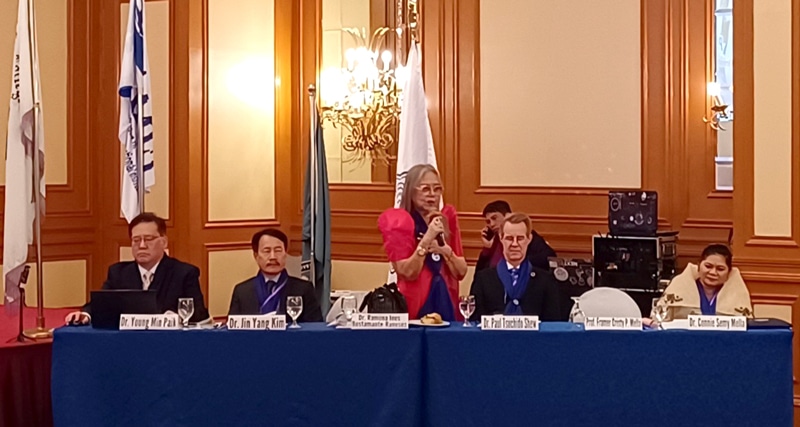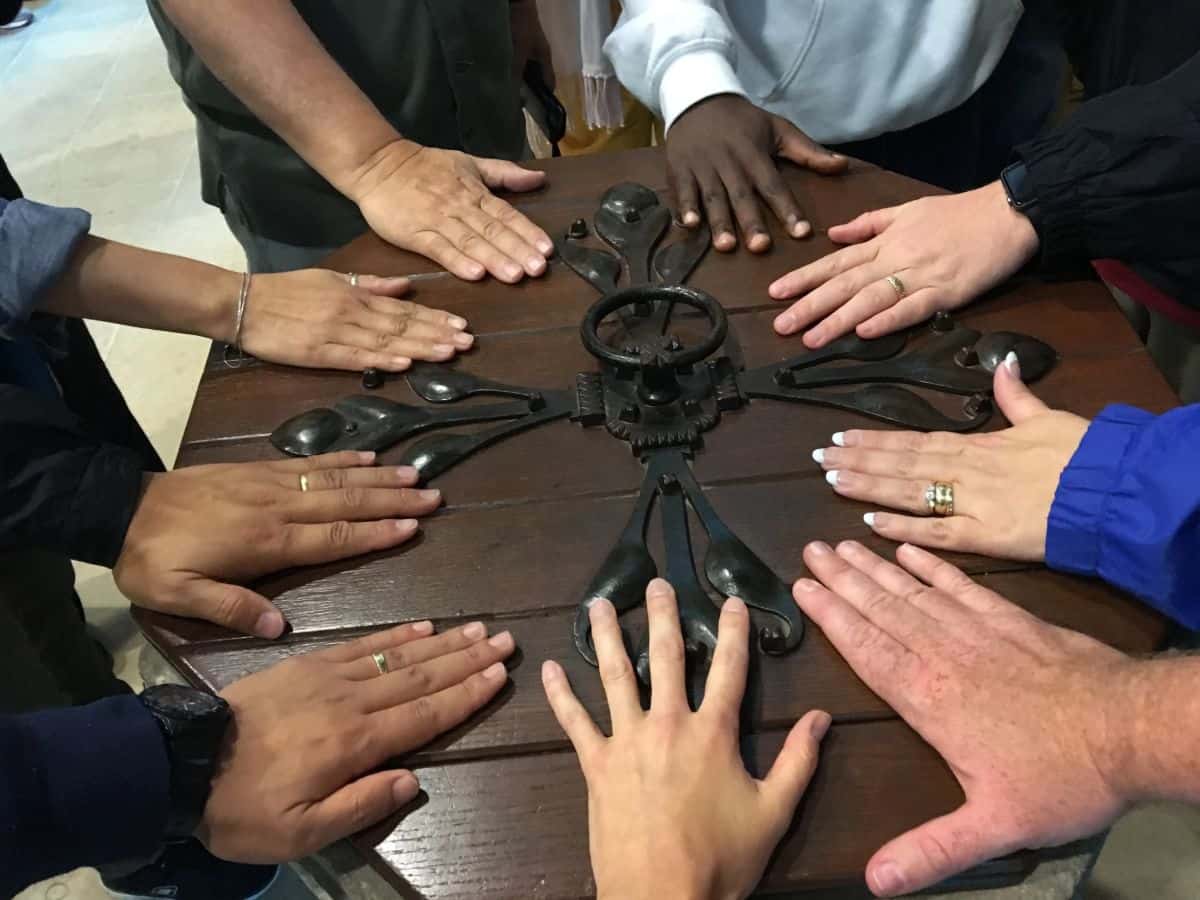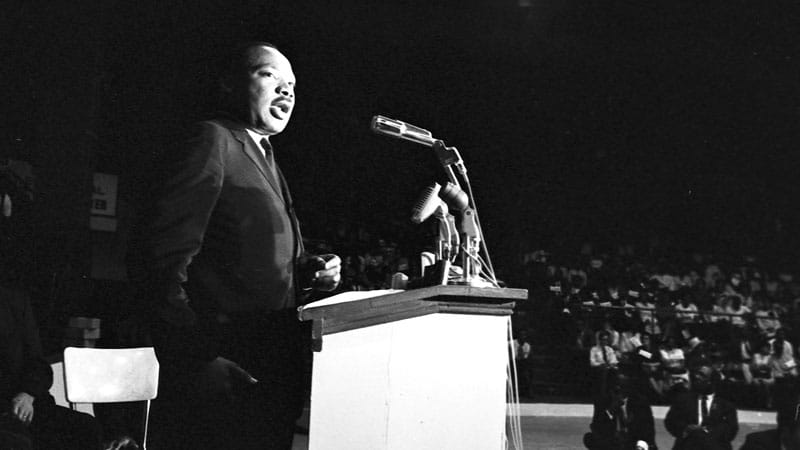Grounding for a Life of Service
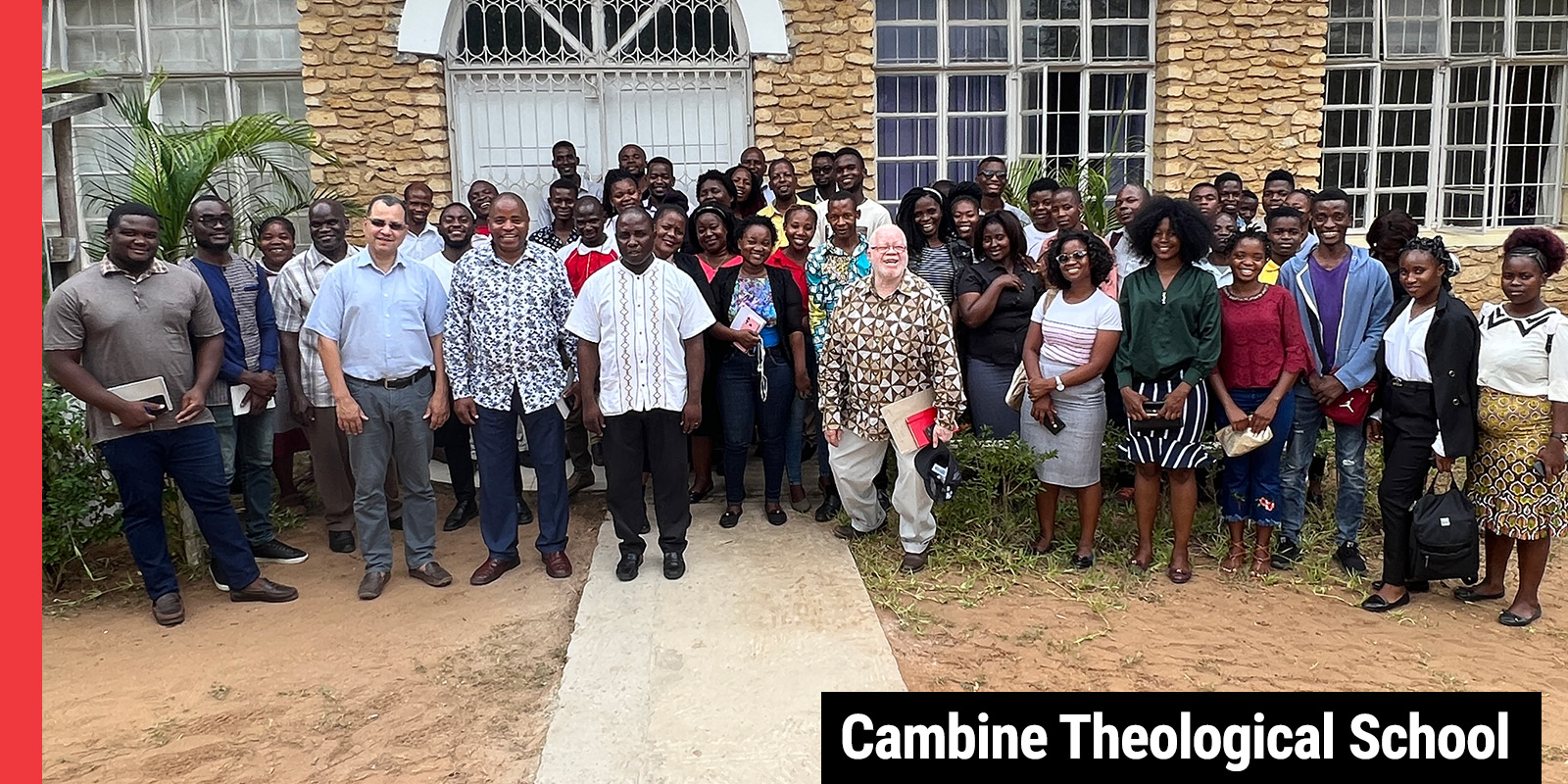
Preparing to serve Christ as ordained United Methodist leaders is sacred work within oneself and in community. Upon responding to the call, leaders need grounding from which new seeds will be planted and bear fruit. Each clergyperson may face issues they never expected in the congregations and communities they serve. That’s why sound theological education is crucial from the start, with programs like the Central Conference Theological Fund (CCTEF), which helps to make theological education possible for so many throughout Africa, Europe, and the Philippines.
Rev. Dr. Júlio André Vilanculos, Chancellor of the United Methodist University of Mozambique, understands the multifaceted life of clergypersons and the importance of funding to help leaders reach their highest callings.
Located in Mozambique’s southeast near the Mozambique Channel and across the waters from Madagascar, the Cambine Theological School receives students from a wide range of contexts. Some live in urban settings with high human populations, where city life has its own stressors. Others live in agricultural areas where food and sustainable practices provide life-giving resources to the people living there and the rest of the country. Each setting where graduates of Cambine offer ministry is unique.
“Our graduated students in theology who are appointed in rural areas spend months and months without salaries. Schools for their children are very far, [and] they do not have the possibility of sending their children to university. Hospitals are very far, and people die because they do not have medical assistance in time,” said Vilanculos.
Amidst life’s challenges, these committed students are serving God. This higher calling provides hope and a taste of God’s kingdom on earth in many regions. “They do not see ministry as employment, but they are called to serve so that people can be transformed and be saved,” said Vilanculos. “Their appointments follow Bishop Joaquina Filipe Nhanala’s Cabinet, which considers the gifts of the clergy as they send them out for service to God and the community.”
“This [CCTEF] is a God-given financial support that has come to help in training and retraining pastors, building capacity to theological institutions, especially around the continent. There is ownership and commitment on the outcome because the beneficiaries are part of the decision on the approval of projects and distribution of funds,” says Bishop Joaquina Nhanala. “I am of the opinion that this should continue for more time due to its importance.”
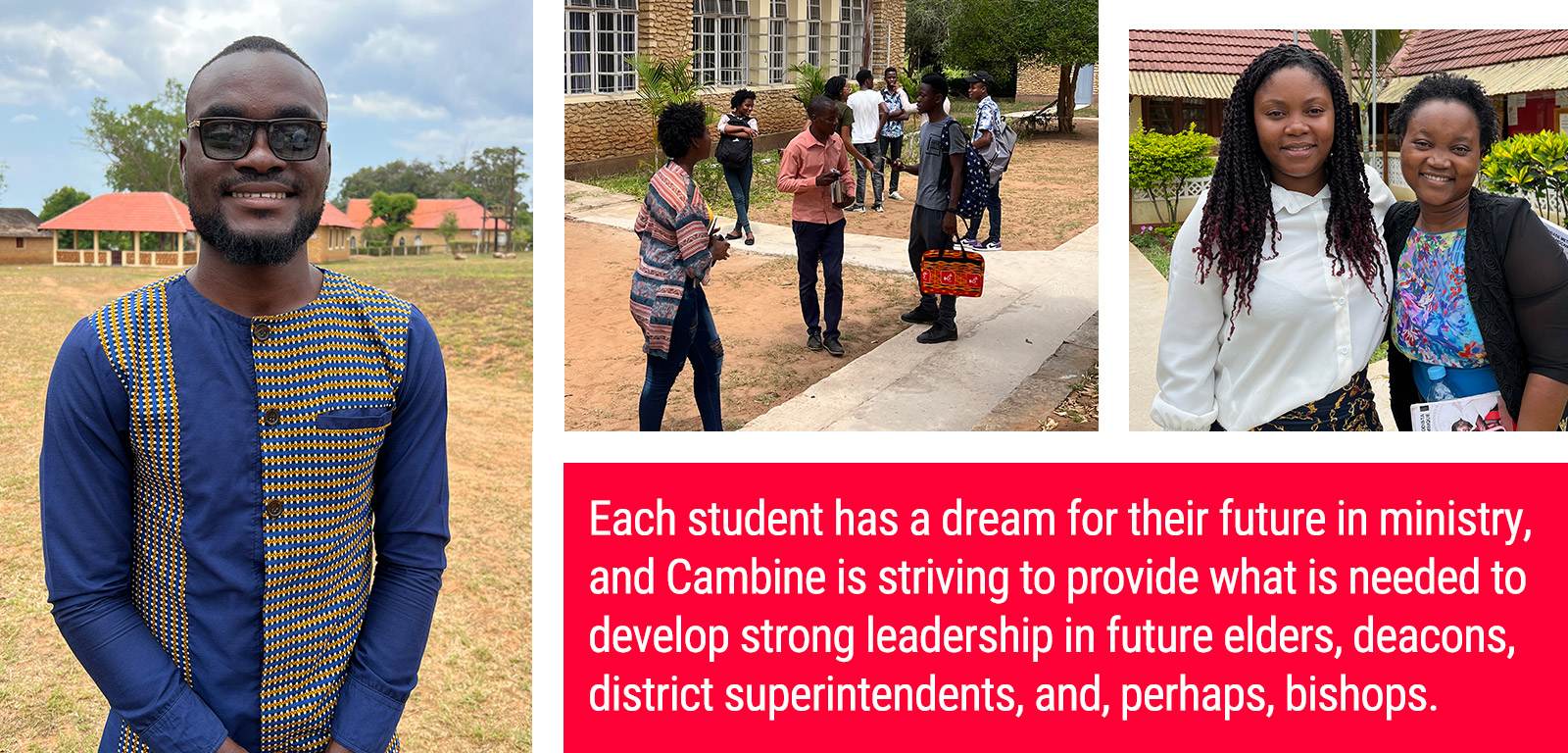
CCTEF allows students to learn Wesleyan theology and how to apply it in everyday life. This grounding engrains a life of personal devotion and communal worship into applying justice and mercy amidst varied circumstances.
The Fund is rooted in the importance of preparation before The United Methodist Church sends clergy out to serve. Establishing a biblical foundation while learning the history of Methodism, church polity, pastoral counseling, and preaching are central to leadership preparation at Cambine Theological School.
Planning for the Future
Each student has a dream for their future in ministry, and Cambine is striving to provide what is needed to develop strong leadership in future elders, deacons, district superintendents, and, perhaps, bishops.
Plans for additional Master’s and Ph.D. degree programs are underway, as school leaders also have an expansive vision for the future. These programs will offer hope for the university’s future in growing student enrollment and diversifying beyond Methodist-only populations. Cambine currently has only a minority enrollment of students from other denominations; by investing in education, we secure a future of hope for students and graduates of Cambine Theological School and in the communities where they will serve.
Learn more about the Central Conference Theological Education Fund and how to apply here
Related Posts
APAMEI Meeting in Manila Focuses on How Methodist Education Can Build a More Just and Peaceful Asia Pacific Region.
Diversity is not just an ideological pursuit. Diversity has a positive, direct impact on our organizations, making them more resilient and creative.
Today is Martin Luther King Jr.’s birthday. He was born in 1929, which would have made him 97 years old today. We remember him as a leader and a prophet. I often wonder what he would say today about the state of our world. Oddly enough, I think we know what his thoughts would be.
